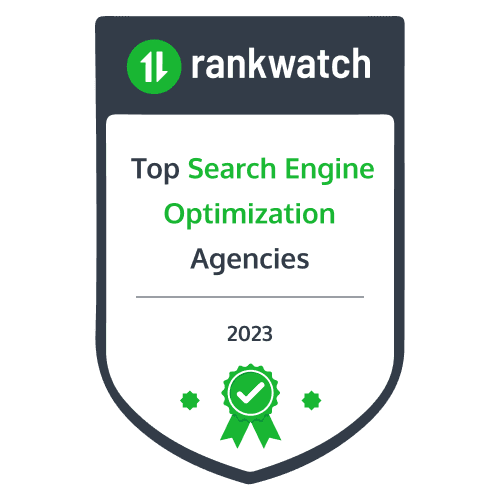As a business owner, you know how important having a solid online presence is. With more and more consumers turning to the internet to research products and services, digital marketing has become a crucial aspect of any marketing strategy. However, managing digital marketing campaigns can be time-consuming and overwhelming. That’s where digital marketing automation comes in.
Digital marketing automation involves using software and tools to automate marketing tasks, such as email marketing, social media marketing, lead generation, and more. Businesses can save time and resources by automating these tasks while improving their marketing efforts. In this article, we’ll explore the benefits of digital marketing automation, the best-automated marketing platforms and tools, and how to implement digital marketing automation in your business.
Benefits of Digital Marketing Automation
Digital marketing automation uses software and technology to streamline and automate repetitive marketing tasks such as email marketing, social media scheduling, lead generation, and customer segmentation. The benefits of digital marketing automation are numerous and include the following:
- Increased efficiency: Automation reduces the time and resources required to complete tasks, allowing marketers to focus on strategy and creative work.
- Improved targeting: Automated marketing allows targeted messaging and personalized content based on customer behavior and interests.
- Enhanced lead nurturing: Automated workflows help nurture leads by delivering relevant content and messaging at the right time, increasing the chances of conversion.
- Better customer retention: You can use automated campaigns to keep customers engaged and informed, improving customer retention and loyalty.
- Greater scalability: Automation allows businesses to scale their marketing efforts without requiring additional resources or staff.
Overall, digital marketing automation helps businesses save time, improve efficiency, and achieve better results in their marketing efforts.
Understanding Digital Marketing Automation Software


To fully take advantage of digital marketing automation, it’s essential to understand the different types of automation software available. There are a variety of automated marketing platforms and tools on the market, ranging from simple email marketing tools to more complex marketing automation suites.
Email marketing tools, such as Mailchimp and Constant Contact, are a good starting point for businesses looking to dip their toes into digital marketing automation. These tools can help you create and send email campaigns, track open and click-through rates, and manage your email list.
More comprehensive marketing automation suites offer a wider range of features, including lead generation, social media management, and analytics. These tools can help you create more targeted and personalized marketing campaigns and provide insights into your campaigns’ performance.
Marketing Automation Software for B2B
Regarding B2B digital marketing automation, there are a few key features to look for in a marketing automation tool. First and foremost, the agency should be able to handle lead generation and lead nurturing. It means it should be able to capture leads from your website and move them through the sales funnel, providing valuable insights into their behavior and preferences.
Another vital B2B marketing automation software feature is integrating it with your CRM. It allows you to track leads and customers across the entire sales process, from initial contact to closed deals.
These tools help you specifically meet the needs of B2B businesses with features such as lead generation, account-based marketing, and CRM integration.
Features to Look for in Automated Marketing Solutions
When looking for an automated marketing solution, there are several key features to consider:
- User-Friendly Interface: An automated marketing solution should have an easy-to-use interface, allowing you to navigate the system and execute campaigns without hassle quickly.
- Multi-Channel Marketing: The solution should handle multiple channels like email, social media, and text messages, allowing you to reach your audience on various platforms.
- Personalization: Personalization is essential for effective marketing. The solution should be able to create targeted and personalized campaigns to ensure you deliver the right message to the right audience.
- Segmentation: The ability to segment your audience based on demographics, interests, and behavior can help you create more effective campaigns.
- Lead Scoring and Nurturing: The solution should be able to track leads and assign scores based on their behavior and activity. You can use this information to nurture leads and move them further down the sales funnel.
- Analytics and Reporting: Detailed analytics and reporting can help you track your campaigns’ success and identify improvement areas.
- Integration with CRM: Integration with a customer relationship management (CRM) system can help you manage leads and track customer interactions.
- A/B Testing: A/B testing allows you to test different versions of your campaigns to determine which performs better.
- Automation: The solution should be able to automate repetitive tasks, such as sending follow-up emails, saving time and improving efficiency.
- Scalability: The solution should be able to scale with your business as it grows, ensuring that it can handle an increasing number of leads and campaigns.
Steps to Implementing Digital Marketing Automation
Implementing digital marketing automation in your business can be complex, but it doesn’t have to be overwhelming. Here are some steps to follow when implementing digital marketing automation:
1. Identify your marketing goals: Before selecting a marketing automation tool, it’s essential to identify them. What do you want to achieve with your marketing campaigns? What metrics will you use to measure success?
2. Choose a marketing automation tool: Once you’ve identified your marketing goals, it’s time to choose one. Consider factors such as pricing, features, and ease of use.
3. Integrate your marketing channels: Once you’ve selected a marketing automation tool, it’s time to integrate them. It includes email marketing, social media marketing, and lead generation.
4. Set up your workflows: Workflows are the backbone of digital marketing automation. Set up workflows that automate repetitive tasks and move leads through the sales funnel.
5. Monitor and optimize your campaigns: Once they are up and running, monitoring their performance and making adjustments as needed is essential. Use analytics to track key metrics and make data-driven decisions about your marketing strategy.
Tips for Successful Digital Marketing Automation
To get the most out of digital marketing automation, here are some tips to keep in mind:
- Focus on personalization: Personalization is critical to successful digital marketing automation. Use customer data to tailor your marketing messages to specific audiences.
- Test and optimize: Digital marketing automation allows you to test and optimize your campaigns in real time. Use A/B testing to experiment with different marketing messages and tactics.
- Integrate with your CRM: Integrating your marketing automation tool with your CRM can provide valuable insights into your leads and customers.
- Keep your data clean: Digital marketing automation relies on accurate and up-to-date data. Regularly clean your data to ensure your marketing efforts target the right audiences.
- Continuously improve: Digital marketing automation is a continuous process. Constantly monitor and optimize your campaigns to get the best results.
Conclusion
Digital marketing automation has revolutionized the way businesses approach marketing. Companies can save time and resources while improving their marketing efforts by automating repetitive tasks and providing valuable insights into customer behavior.
When selecting a marketing automation tool, it’s essential to consider factors such as pricing, features, and ease of use. Remember to focus on personalization, test and optimize your campaigns, integrate with your CRM, keep your data clean, and continuously improve.
Finally, don’t miss out on automating your digital marketing campaigns. Contact Markitome to know more!



We hope you’re enjoying reading our blogs… Don’t forget to secure your browsing experience with Nord VPN. Click the banner below to learn more
More To Explore
Redefining Digital Marketing in 2024: 10 Game-Changing Trends
In the ever-evolving world of digital marketing, staying ahead of the curve is essential. As we approach 2024, it’s crucial to be aware of the
SEO Mania-7 Proven Strategies for Explosive SEO Growth in 2024
Understanding the Importance of SEO in 2024 In the ever-evolving world of SEO, staying ahead of the curve is crucial to your online success. As